The FIFA Club World Cup 2025, with its expanded format, has delivered a captivating group stage filled with compelling narratives. From an increased number of participating teams to a redesigned trophy, multiple venues, and the introduction of a referee cam, this edition held in the United States is striving to emulate the prestige of the quadrennial World Cup.
Organizers have framed the tournament as "a celebration of hope, excellence and pride," uniting clubs, players, and fans through their shared love for the sport. With numerous debutants and a month-long schedule, the competition has undeniably grown in significance.
Featuring teams from all six confederations—12 from Europe, 6 from South America, 4 from Africa, 4 from Asia, 4 from North, Central America and the Caribbean, 1 from Oceania, and the host nation representative—the 2025 lineup is complete.
As the group stage concludes and the remaining 16 teams prepare for the knockout rounds, this year's Club World Cup has already produced its share of upsets, classic underdog stories, and moments of intense rivalry, both on and off the field.

Auckland City, ranked a distant 4,971st in the Opta Power Rankings, entered the Club World Cup as the lowest-ranked team. Drawn into a group with powerhouses Bayern Munich, Benfica, and Boca Juniors, their chances appeared slim. The team, comprised of amateurs who compete in New Zealand's Northern League, faced a daunting challenge.
Their tournament began with a humbling 0-10 defeat against Bayern Munich, the largest margin of victory in the competition thus far, followed by a 0-6 loss to Benfica.
Facing Argentinian giants Boca Juniors in their final match, Auckland City, already eliminated, defied expectations. In a classic David vs. Goliath encounter, the underdogs held Boca to a 1-1 draw, denying them a crucial victory needed to advance to the Round of 16. The result, considering the 4,819-point ranking difference and Boca's storied history, was a monumental achievement for the amateur side.
Lionel Messi's Inter Miami, placed in a challenging group alongside Porto, Al Ahly, and Palmeiras, were not favored to progress. However, the Argentine icon, supported by fellow stars Luis Suarez, Jordi Alba, and Sergio Busquets, led the team to a second-place finish in Group A, securing a spot in the Round of 16.
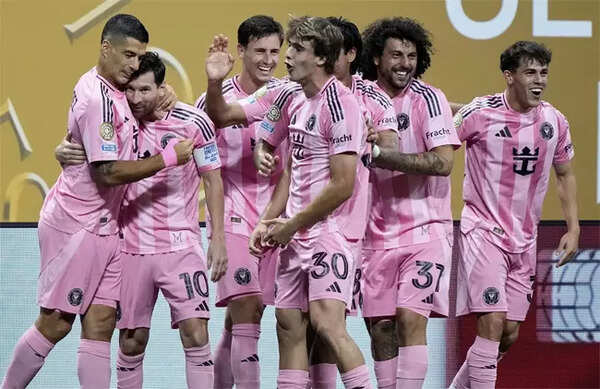
Despite securing only one win, it proved sufficient for qualification. After a draw against Al Ahly in their opening match, Miami faced a tough test against Porto. Messi's brilliance, highlighted by a stunning free kick, propelled Miami to a 2-1 victory. A 2-2 draw against Palmeiras in their final group game sealed their place in the next round.
Tempers flared on the final matchday in Group E, as River Plate's hopes of reaching the Round of 16 were dashed by Inter Milan. The final whistle sparked a heated confrontation between River's Marcos Acuna and Inter's Denzel Dumfries, requiring intervention from teammates and staff. The rivalry, stemming from a previous encounter three years prior, saw Acuna displaying a shin guard bearing the 2022 World Cup trophy logo to Dumfries, a reminder of Argentina's victory over the Netherlands in a fiery quarter-final decided by penalties.
The heat extended beyond on-field clashes. Extreme temperatures forced teams to implement cooling measures, such as ice baths and cold towels. Borussia Dortmund took the unusual step of having substitutes watch their game against Mamelodi Sundowns from the locker room to shield them from the scorching heat, which their coach likened to a "sauna." Thunderstorms and lightning caused delays in at least five matches.
Adding another layer of complexity, U.S. Immigration and Customs Enforcement (ICE) and Customs and Border Protection (CBP) have a presence at the tournament, requiring non-citizens to provide proof of legal status to attend games.
With the 2026 FIFA World Cup, co-hosted by the United States, Mexico, and Canada, less than a year away, this Club World Cup has highlighted several potential concerns. Issues such as pitch quality, heat, and overall weather conditions have made for a less-than-seamless tournament experience.
Real Madrid's Jude Bellingham openly criticized the playing surfaces, stating, "The pitches aren’t great here. The pitches aren’t great at all," following his team's match against Pachuca in Charlotte.
Despite the emergence of underdog stories and a broader range of participating teams, the tournament continues to be dominated by European powerhouses. Clubs like Real Madrid and Manchester City remain strong contenders for the title. Notably, five teams—Seattle Sounders, Urawa Reds, Ulsan, Wydad AC, and Pachuca—were eliminated without earning a single point.
Newer articles
Older articles
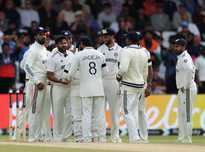 Gambhir Defends India's Lower Order After England Test Collapse, Cites Missed Chances and Bumrah Workload
Gambhir Defends India's Lower Order After England Test Collapse, Cites Missed Chances and Bumrah Workload
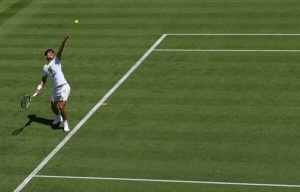 Wimbledon Serves Up India: Tennis Tournament Eyes Cricket-Loving Nation for Global Growth
Wimbledon Serves Up India: Tennis Tournament Eyes Cricket-Loving Nation for Global Growth
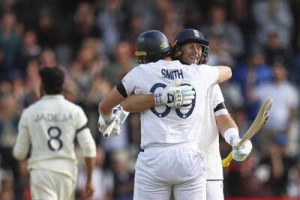 India-England Test Series Ignites Streaming Frenzy: JioHotstar Hits Record 89.1 Million Viewers
India-England Test Series Ignites Streaming Frenzy: JioHotstar Hits Record 89.1 Million Viewers
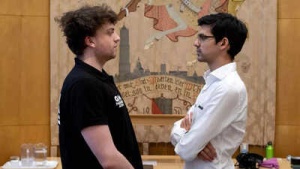 Anish Giri Defends Hans Niemann, Cites Lack of Evidence in Cheating Allegations
Anish Giri Defends Hans Niemann, Cites Lack of Evidence in Cheating Allegations
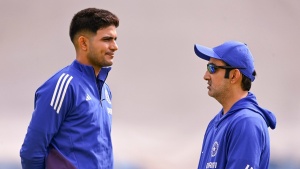 Shastri Endorses Gill as Long-Term Test Captain, Urges Three-Year Commitment Despite England Setback
Shastri Endorses Gill as Long-Term Test Captain, Urges Three-Year Commitment Despite England Setback
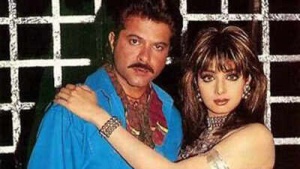 Sridevi's 'Laadla' Unease: Raveena Tandon Reveals Eerie Set Coincidence After Divya Bharti's Death
Sridevi's 'Laadla' Unease: Raveena Tandon Reveals Eerie Set Coincidence After Divya Bharti's Death
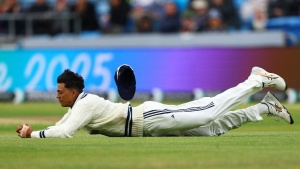 Jaiswal's Slip Fielding Woes: Dropped Catches Lead to Role Change for Edgbaston Test
Jaiswal's Slip Fielding Woes: Dropped Catches Lead to Role Change for Edgbaston Test
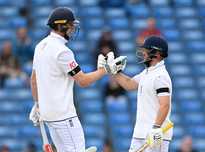 England Captain Stokes Praises Opening Duo After Thrilling Test Win Over India
England Captain Stokes Praises Opening Duo After Thrilling Test Win Over India
 Steve Smith Eyes Grenada Test Return After Injury Layoff
Steve Smith Eyes Grenada Test Return After Injury Layoff
 Asia Cup 2025: ACC Targets September Launch Amid Easing India-Pakistan Tensions
Asia Cup 2025: ACC Targets September Launch Amid Easing India-Pakistan Tensions